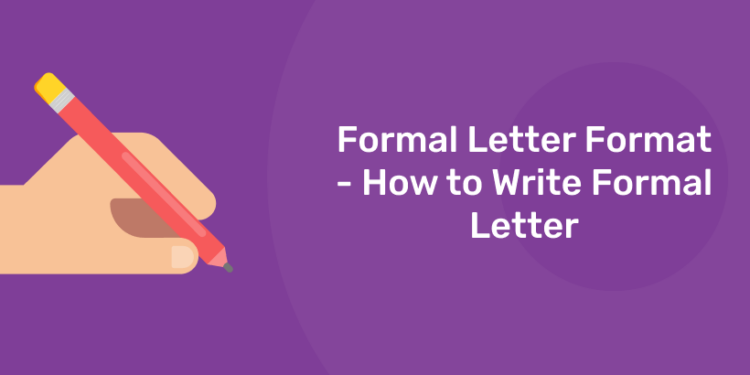Table of Contents
Letters are an effective mode of communication. There are basically two kinds of letters – formal and informal. Formal Letters are professional and need to be drafted carefully.
What is a Formal Letter?
Formal Letters, also called Business Letters or Professional Letters, are letters that are written in a strict and specific format. Formal letters are naturally much more formal in style than informal/friendly letters. There are various importance of formal business letter and some reasons are below:
- to express your concerns in the professional setup
- to provide official information across your workspace
- to order goods, to apply for employment
- to the Editor of a newspaper addressing the problems faced by various groups of people in different areas, etc.
Know how to write date in formal letter below!
Structure of a Formal Letter
1: Which of the sentences below is grammatically correct?
As far as formal letters are concerned, the structure of the letter changes depending on the type of letter. There are certain rules to be followed to be able to draft a formal letter.
Types of Formal Letters
There are different types of formal letters, as discussed, and they can generally be labelled under the following terms:
- Business Letters
- Letters of Application
- Letters to Newspapers
Business Letters
Business letters should be terse, clear and to the point. There is no room for any kind of stories in a business letter. Before you start to write a business letter, there are a few things you should keep in mind.
- Use simple, everyday language to convey the message clearly instead of using flamboyant and overemphatic vocabulary.
- Never use jargon that is commonly used in business when you write a business letter.
- Avoid using abbreviations as much as possible.
- The modes of address vary according to the type of letter and the receiver.
- Clear and exact descriptions of the articles necessary with the expected quality and quantity should be listed with utmost care when you write a letter to order goods.
- When replying to a business letter, always quote the date of the letter you are responding to and the number of references (if any).
Formal/Business letters include letters from an employer to the employees and vice versa, letters to order and replace goods, letters of serious concern to an officer of higher rank, letters of complaint, etc.
Subscribe to Entri for more details on English exams!
Letters of Application
Letters of Application usually consist of letters applying for employment. Before and after you write a letter of application, make sure you check for the following:
- Always start with a short introduction stating whether the applicant is writing in response to a reference from an advertisement found online or in the newspaper.
- State the age, education and experience of the applicant.
- Provide the employer with a genuine expression of the applicant’s earnestness in taking up the job in the respective company.
- Also, furnish references so that the employer can gather an idea of the kind of employee you would be.
Letters of Application should follow the format of formal/business letters.
Letters to Newspapers
Always address these letters to ‘The Editor’ and end with ‘Yours faithfully’. Letters to the Editor are letters that express concerns that should be addressed to the higher authorities. These letters should be professional and authentic. No newspaper would publish anonymous letters, so make sure you are writing the letter for a cause and provide your name and address correctly.
Spoken English Course for Guaranteed Confidence and Career Growth
Spoken English Course by Entri App: Enhance your communication skills, gain certification, and boost your career with confidence.
Join Now!Writing a Formal Letter
When writing a formal letter, always be respectful and conscious of your language, no matter what the subject of the letter might be. The parts of a formal letter should be understood in details. To write a formal letter, there are some points to be remembered.
- Always start with the sender’s address
- This is followed by the date.
- The receiver’s address comes next. The receiver can be the name of the firm or the one who represents the firm.
- The subject of the letter is very important. It is a statement of the purpose of the letter. It should be written in a single line.
- The salutation can be Dear Sir/Ma’am. If it is a person you know well, you can address them by their name, ‘Dear Shrinath’.
- The body of the letter can be written in 3 paragraphs.
- The first paragraph should be aimed at introducing yourself and stating the purpose of your letter.
- The second paragraph should furnish all the information about the matter.
- The third paragraph can be a concluding paragraph where you lay out your expectations regarding the matter.
- To close the letter, you can use a complimentary closing like ‘Yours faithfully’, ‘Yours sincerely’ etc.
- Unlike informal letters, the signature should include your name (in block letters) and designation below your signature.
Check out the Entri App for more details on English exams!
You will be provided with an online platform to prepare for the exam. Entri provides video classes as well on various important topics by the excellent faculties. One will get revision modules, monthly tests based on the classes. Entri provides an excellent platform with full-length mock tests including previous year question papers.










